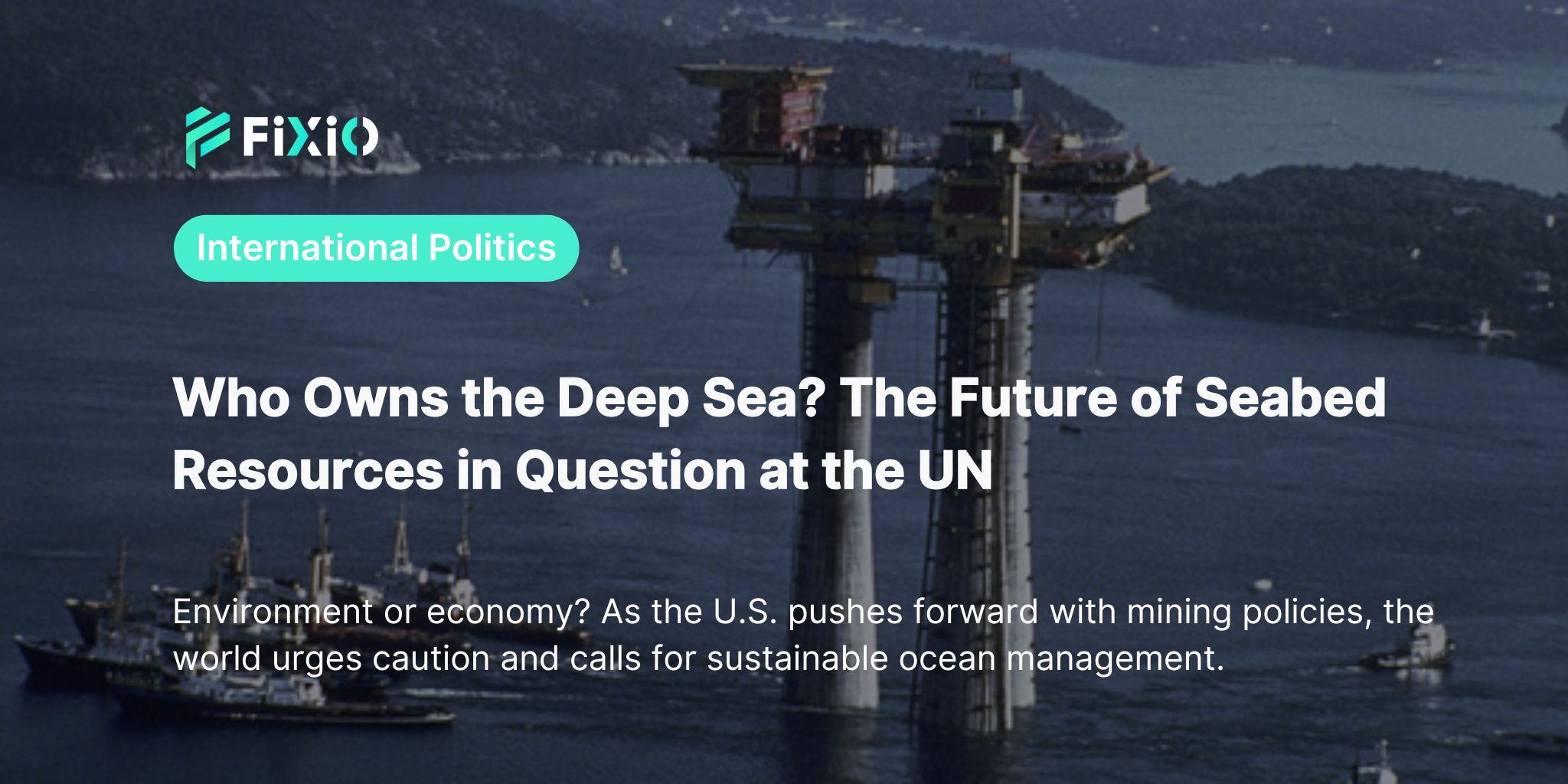
June 2025 | Nice, France — At the ongoing United Nations Ocean Conference in Nice, southern France, the United States has expressed its intention to promote seabed resource development. This stance has drawn numerous calls from global leaders to avoid hasty development, highlighting divisions among participating nations. The conference, involving about 120 countries and regions, aims to adopt a joint declaration focusing on marine environmental protection, plastic waste reduction, and sustainable resource utilization. One of the focal points is the development of rare metals such as cobalt and nickel found on the ocean floor.
In April 2025, the Trump administration announced plans to advance seabed mining beyond the Exclusive Economic Zone (EEZ). The initiative is seen as both a move to secure resources and to counter China's growing influence. However, French President Emmanuel Macron condemned the plan, stating, "Destroying the deep sea and disrupting biodiversity is madness. The deep sea is not for sale." UN Secretary-General António Guterres also warned against turning the deep sea into a lawless zone. Brazilian President Luiz Inácio Lula da Silva criticized nationalist maritime policies, emphasizing the need to avoid repeating the mistakes of disrupted global trade rules in the ocean domain.
The United States has sent no ministerial representatives, participating only as an observer, further underlining its differing stance. Over 30 countries, mainly from Europe, Latin America, and the Pacific Islands, have called for a moratorium on mining activities until thorough scientific studies are conducted.
Before the conference began, about 1,000 citizens and NGOs held demonstrations along Nice’s coastline, raising concerns that unilateral mining in international waters could violate international law and harm the environment.

Source: NHK News
The deep sea holds vast deposits of rare metals like cobalt and nickel—critical for electric vehicle batteries—estimated to be worth $20 trillion, or 2,900 trillion yen. However, little is known about the ecological impact of mining. A team from France’s National Institute for Ocean Science conducted surveys from November 2024 to January 2025 in waters between Hawaii and Mexico. Their findings showed notable surface disruption and disappearance of some marine species. Lead researcher Dr. Pierre-Antoine Descandies warned, “Some species could go extinct,” calling for long-term studies.
Resources in international waters are governed by the United Nations Convention on the Law of the Sea under the management of the International Seabed Authority (ISA). However, the U.S. has not ratified the treaty, raising concerns about unregulated exploitation outside the international framework.
While the economic and energy security value of seabed resources is undeniable, environmental risks and the need for international rule-based sustainable management are growing. Moving forward, scientific evidence and multilateral consensus will be essential.
For the latest updates on environmental and international news 👉 Check the FIXIO Blog
The UN Ocean Conference in Nice has sparked global debate over deep-sea mining, with growing calls to pause extraction until environmental impacts are fully studied.
The U.S. policy favoring rapid seabed development faces sharp criticism from France, Brazil, and UN leadership, highlighting a global divide.
Superior trade execution & trading conditions with the NDD method.

The online FX industry provides a platform for investors worldwide to engage in the buying and selling.

Subscribe to our daily newsletter and get the best forex trading information and markets status updates
Trade within minutes!
Comment (0)